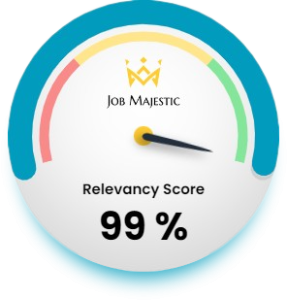Entering the job market as a fresh graduate can be both thrilling and intimidating. While you may not have years of work experience, you do have something equally valuable: potential, enthusiasm, and a fresh perspective. So, you create a cover letter, and this is your chance to show it to the world. Unlike a resume, which will list your accomplishments, such a letter gives you the opportunity to tell your story and connect your background to the position you’re applying for.
1. Understand the Purpose of a Cover Letter
The first cover letter tips in creating a strong cover letter is understanding its purpose. An informative cover letter is one that tells the employer why you’re interested in the company and the position, what makes you a good candidate, and how your skills or experience—academic or otherwise—can add value. Since most hiring managers know that recent graduates don’t have extensive work experience, they’re looking for something else: a willingness to learn and develop, and a fit with the company’s mission.

2. Do Your Research and Personalize Your Opening Strongly
Start with research. It will help you gain the deepest insight into the culture at this company, the roles, and the qualities they value in their team members. With that background, you can now write a personalized cover letter that speaks directly to the employer’s needs. Instead of simply stating, “I am applying for the Marketing Executive position,” use a more specific and compelling opening like, “With my recent degree in communications and deep passion for digital storytelling combined with my deep admiration for XYZ Agency’s innovative campaigns, I am excited to apply for the Marketing Executive position.” It stands out instantly with relevance, passion, and personalization.
3. Highlight Relevant Academic and Project Experience
In the body of your cover letter, highlight relevant academic, internship, or project-based experience. While you may not be working in a job, you may have done a lot of things at university, such as group projects, research, leading clubs, etc., that demonstrate some good skills. For example, a team-work project in class that developed a digital strategy for a local business shows high leadership and initiative and the ability to deliver solutions. From a vague explanation of “I increased social media engagement,” editorial to “I managed our club’s Instagram account and increased engagement by 40% in three months through a targeted content strategy.”
4. Emphasize Transferable Skills
Highlight transferable skills, especially those gained from part-time work, volunteer work, or extracurricular activities. Employers value soft skills like communication, teamwork, adaptability, and time management—just as much as technical skills. Frame it like this: “My experience working part-time in retail taught me how to stay calm under pressure, communicate with a diverse customer base, and resolve conflict—skills I want to use in a customer-facing marketing role.”

5. Match the Tone and Language to the Company Culture
Another important step is to make sure the tone and language of your cover letter matches the culture of the company you’re writing for. For creative companies, this might mean a more casual, conversational tone. For corporate or technical roles, a more professional, to-the-point tone will be appropriate. This subtle alignment can help show that you understand and fit in with the company’s environment. While you should let your enthusiasm shine through, avoid any exaggerated claims, such as “I’m the best candidate for this job.” Instead, balance confidence with humility: “I’m excited to learn under your team’s guidance and contribute to your continued success.”
6. Show Enthusiasm Without Being Over-the-Top
Organize your letter well. The standard structure for a cover letter is three to four paragraphs, starting with an introduction that states who you are and why you’re applying, followed by the main body that outlines a range of relevant experience and skills, and ending with a thank you note and an invitation to discuss further. Be concise, to the point—ideally, no more than one page. Use action verbs and avoid empty phrases like “team player” or “hardworking”—lead by example.

7. Proofread and Format Professionally
Proofreading should be done carefully. A single spelling or grammatical error can hurt your chances; therefore, read the letter several times and ask for feedback from others. It should be presented in a clear, readable format: standard font Calibri or Times New Roman. – Font size between 10.5 and 12 points with consistent spacing between paragraphs. Save and send your letter in PDF format unless a specific format is indicated by the application.
8. Close with a Confident Call to Action
End your cover letter with a confident but polite call to action. A strong closing might look like this: “I welcome the opportunity to discuss further how my background in business analysis and problem-solving thinking can support your team. Thank you for considering my application—I look forward to contributing to the success of your organization.” Imagine a sample paragraph in your letter: “Finally, I’m a fourth-year business student interested in using data to make decisions. I recently completed a capstone project, analyzing customer behavior for a local startup. Our proposal led to a 22% increase in customer retention. This equipped me with a solid foundation not only through this project but also through my training in Market Analytics and Customer Research.” This is a paragraph that provides relevant skills, measurable results, and real passion in just a few lines.
Conclusion
Remember, the goal of your cover letter is to go beyond your resume and paint a picture of who you are and what you can bring to the company. Even without formal experience, you can still demonstrate enthusiasm, initiative, and readiness to grow. Employers aren’t just hiring skills—they’re hiring people. If you can connect your personal story to the company’s mission, show that you’re prepared to learn, and highlight your unique perspective as a fresh graduate, you’ll already be ahead of the competition. In summary, making your cover letter stand out as a fresh graduate is all about personalizing your message, showing what you’ve learned through your academic and life experiences, and expressing genuine interest in the company and role. Research the organization, write with intention, and always be authentic. A strong cover letter can make the difference between getting noticed or getting overlooked—so take the time to craft it with care.
![]()






